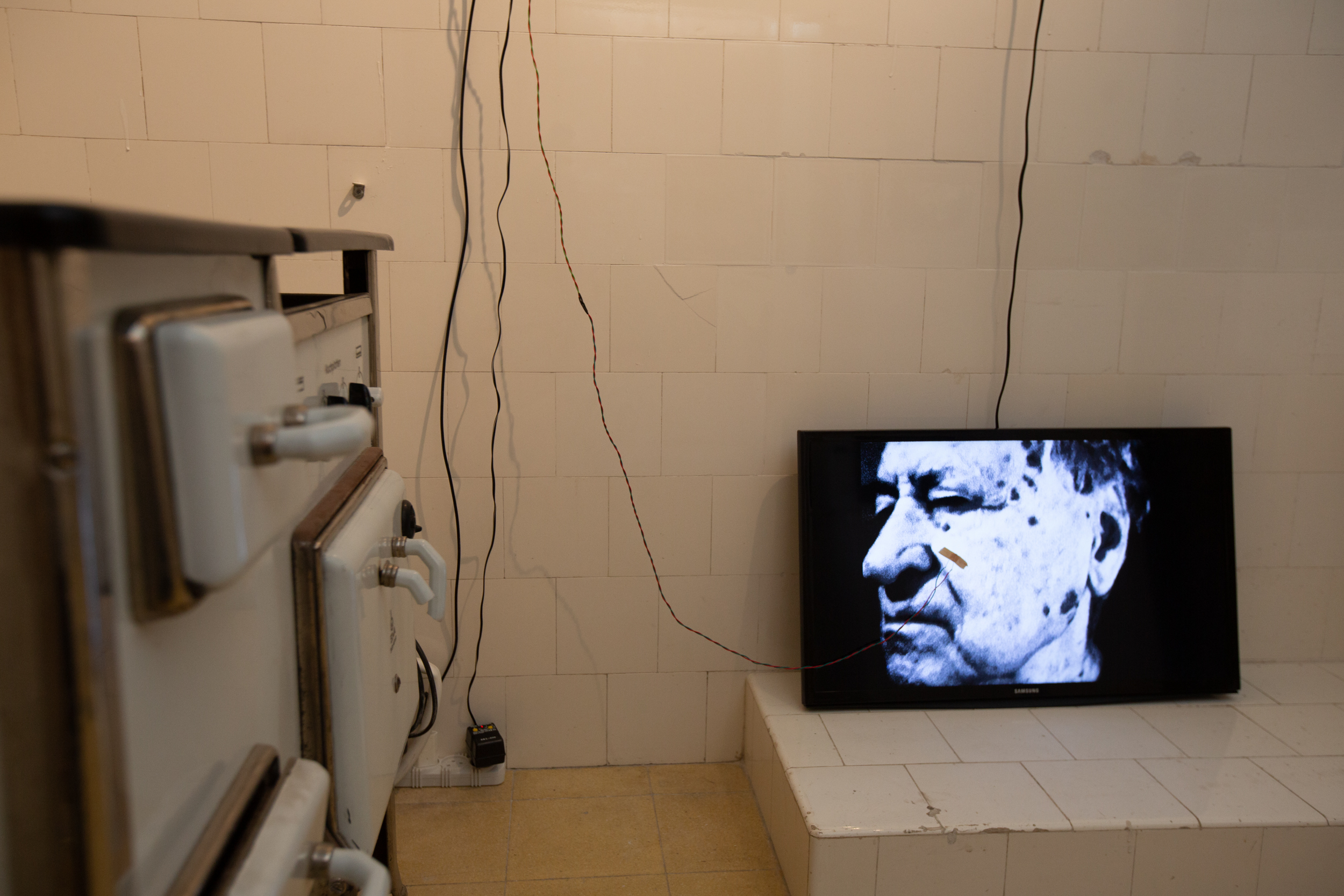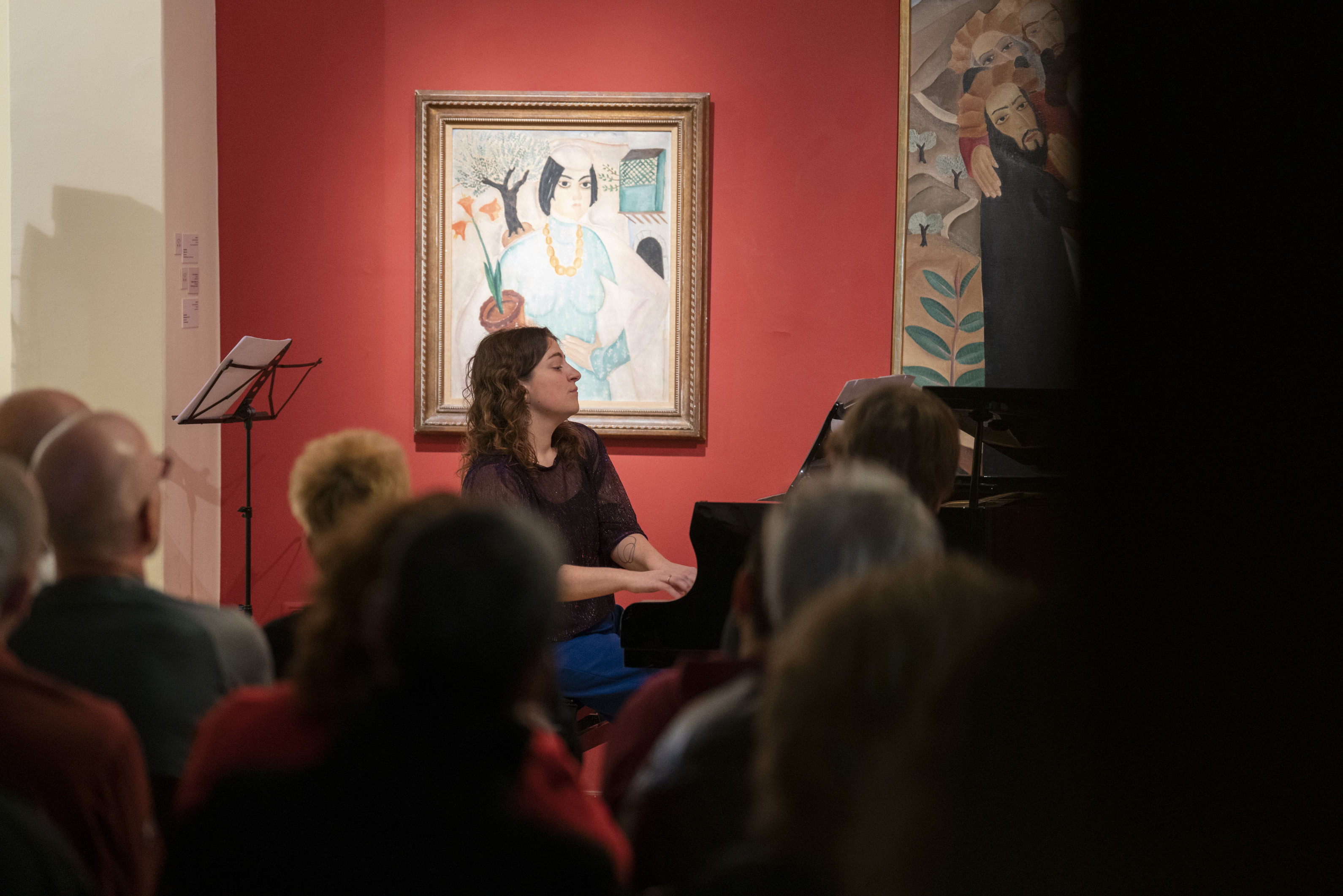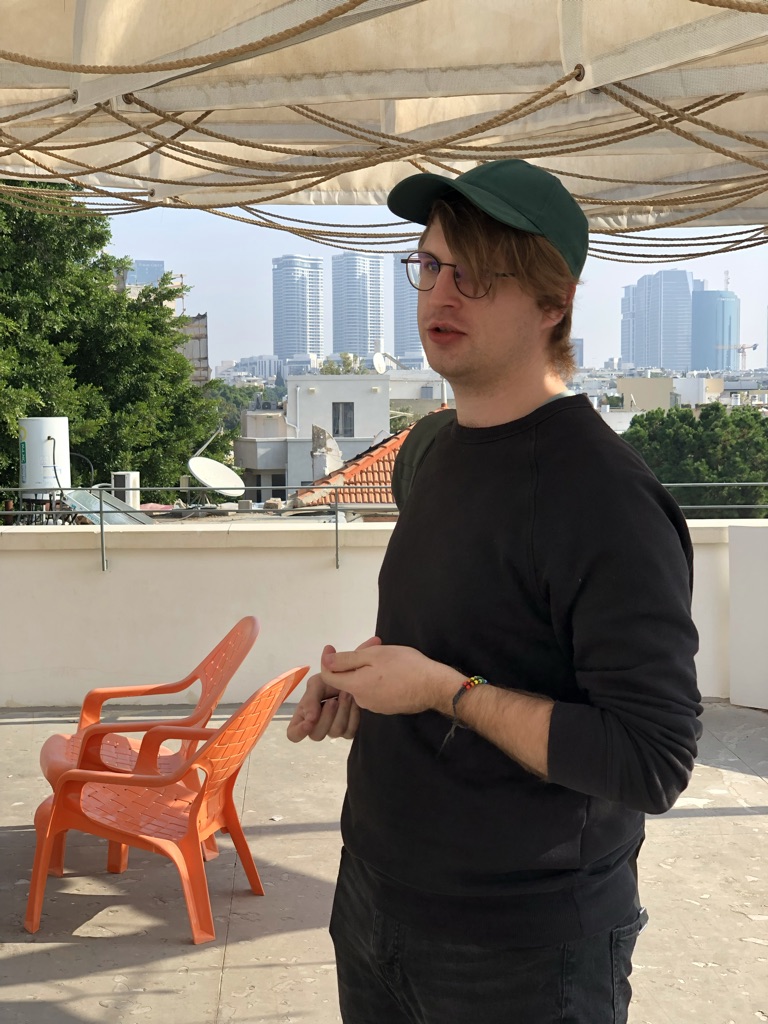Inspired by Jonas Mekas: A Three-day Festival in Tel Aviv
- Dec. 19, 2022
Accidental Poems was the title of a three-day interdisciplinary festival that took place December 7–9 in Tel Aviv, Israel, dedicated to the artistic legacy of Jonas Mekas, the Lithuanian poet and film director. The inaugural festival was a joint project launched by the Music Information Centre Lithuania and the Felicja Blumental Music Centre and Library in Tel Aviv. It is also part of the Jonas Mekas centenary programme managed by the Lithuanian Culture Institute. The project was initiated by Elena Keidošiūtė, Lithuania’s cultural attaché in Israel, and the curator of the programme was Dr. Guy Dubious.
Mekas’s filmed diaries have become a cornerstone in the history of avant garde cinema, the artistic practice that earned him in the 1960s an important spot on the New York scene of experimental arts. Sound and music were important ingredients in his films and cultural environment. The festival was not meant to represent his musical works as such, but rather to originate a certain process by making use of the materials in his personal archive and the music that is or may be related directly to him.
‘Now We Are Here,’ the famous phrase Mekas used and the name of one of his music bands, became the starting point for the entire festival as a reflection of the spirit of the avant garde and the poetic force to be found in the ominous drive forward – towards the unknown and the unexpected. The aspect of living within a community is important here too as it was something Mekas aspired to and wished to be expressed in his works.
December 7, the first day of the festival, saw Marta Finkelštein, the pianist and artistic director of the Synaesthesis Ensemble of new music, perform at the Rubin Museum a panoramic programme of Lithuanian classical and new music, including pieces by Mikalojus Konstantinas Čiurlionis, Julius Aglinskas, Žibuoklė Martinaitytė, Julius Andrejevas, Anatolijus Šenderovas, and Dominykas Digimas whose As It Came Into My Little Attic was inspired by Mekas and involved excerpts from his diaries.
“It was a great pleasure for me to play a Lithuanian programme in Tel Aviv, the music that I’ve long had in my fingers and dreams,” said Finkelštein. “I chose pieces that lead the listener along a certain distance of time, from compositions written in the early 20th century to very recent ones. Through a play in harmony and melodic quotes, they tell an uninterrupted story. As a performer, I was glad to present piano music that is both time-tested and very fresh.”
The Max Liebling House, the Bauhaus building in the heart of Tel Aviv, was the festival venue on the second day which focused on Temporary Soundtracks, a series of custom-made audio-visual events and installations by Israeli artists based on archive film materials by Jonas Mekas. For their improvisations, the artists combined traditional instruments, such as the double-bass, harp, electric guitar, and drums, with a variety of sound-generating equipment and experimental tools designed to distort sounds and images. As a result, the atmosphere, as far as sound is concerned, was very much like that during the events in Vilnius dedicated to avant-garde jazz and experimental electronic music. As many as eight live performances followed one after another with listeners migrating between different levels of the building which also housed four visual installations.
For the final day of the event, the head of the Music Information Centre Lithuania, Radvilė Buivydienė, moderated a discussion on December 9 with composer Dominykas Digimas who spoke about his musical practices, artistic ties with Mekas, his most recent musical and theatre projects, and key subjects in music. Curiously enough, the artist Assar Tager reflected a little later, during a workshop dedicated to experimental cinema, on a meeting with Digimas, saying that his artistic ideas, too, centre around the themes of reminiscence and remembrance. Digimas concluded his programme with a sound-walk through Tel Aviv’s streets, courtyards, and seaside.
“While at the festival, I suddenly realised that the men and women around here are not accidental,” Digimas said. “For some, this was perhaps the first time they had a chance to get acquainted with the personality of Jonas Mekas. For others, this resulted in the discovery of his work – and themselves through it. For the three days, I felt myself inside a festive and tightly-knit community, the members of which know each other well. Each day offered a different perspective on our own relationship with everything around us, including ourselves and our reminiscences, everything that constitutes our daily lives and things beyond the mundane. Tel Aviv, a multicultural city, came as a pleasant surprise to me. Here, by the way, I guided my first ever sound-walk abroad, and my experience was more profound than usual.”
“After the invitation to join the programme for the centenary of Jonas Mekas, I felt somewhat confused, because it is not often that we deal with poetry and cinema,” said Radvilė Buivydienė, head of the Music Information Centre Lithuania. “In the course of the 18-month preparation process, however, we had a chance to reevaluate our own daily routines and find out a number of common interests with our partners in Tel Aviv. For both sides, it was important to rediscover the materials in our archives, develop new ties between artists, and share our artistic practices in the name of new initiatives. As a multi-talented artist, Jonas Mekas served as a particularly powerful inspiration for us. Our amiable partnership, I hope, will continue through new genres and themes the huge potential of which we discovered during the festival.”
Sebastian Mekas and the Estate of Jonas Mekas contributed to the project by sharing rare archive materials used during the festival. Additional funding was provided by the Lithuanian Culture Institute, the Arts Department of the Tel Aviv-Jaffa Municipality, the Lithuanian Council for Culture, and the Ministry of Culture of the Republic of Lithuania.


